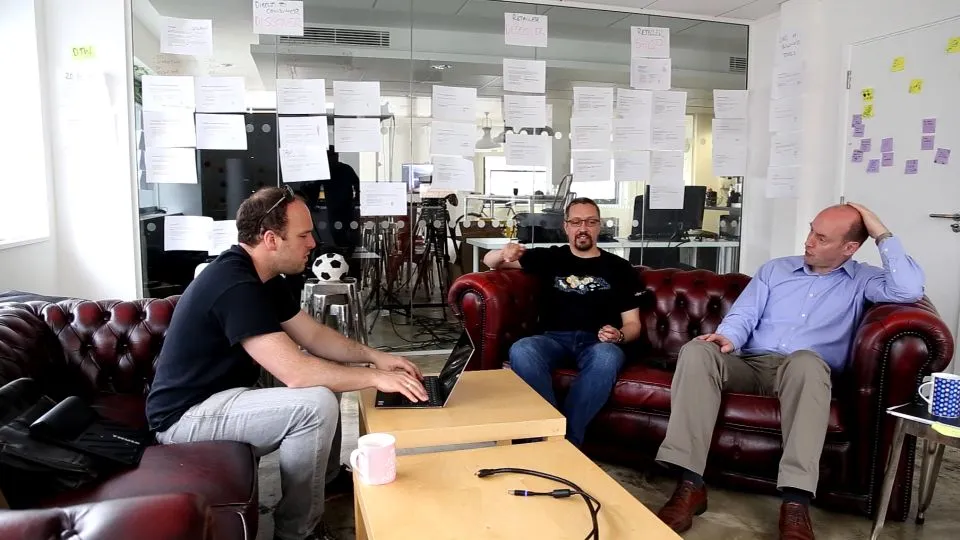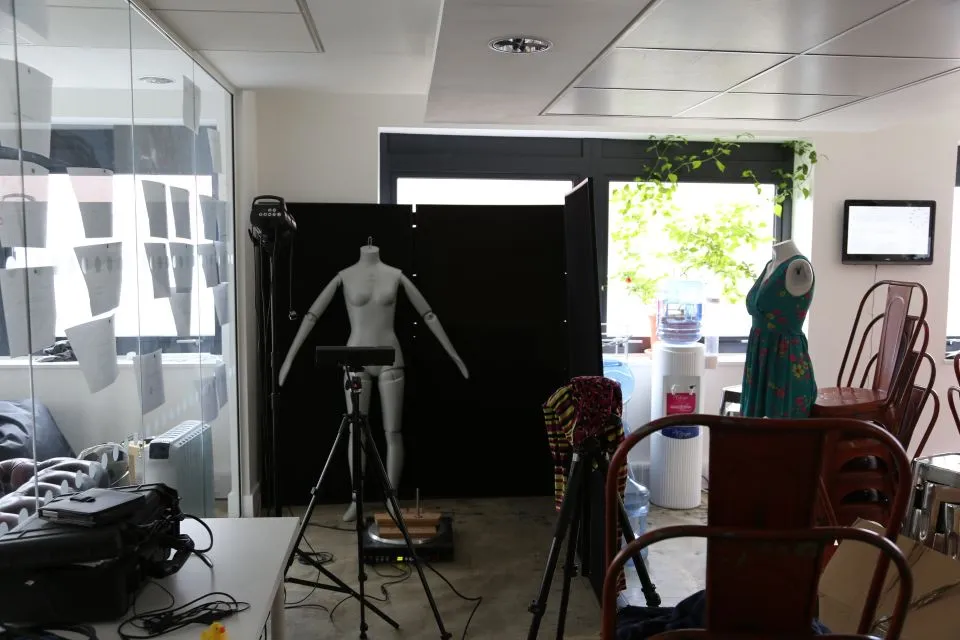
Metail is an innovative tech provider to the fashion industry.
They develop online tools that allow customers - with just 5 measurements - to see what clothes will look like on their own body shapes; to virtually try-on clothes using accurate 3D avatars.
Using machine learning and data science they can even make recommendations and give fashion advice, whilst being able to feed data back to the clothes producers as to improve cuts and sizing. Their software is delivered to online retailers across the globe, including India, Korea, Thailand and Europe.
Metail uses Clojure for their RESTful API services and ClojureScript on the front-end. They maintain a Metail tech blog and host a variety of meet-ups at their offices such as Data Insights Cambridge, Cambridge AWS User Group, and Cambridge NonDysFunctional Programmers. Metail also sponsored this year’s /dev/summer.
Malcolm Sparks and I caught up with Jim Downing (CTO) and Andrew Dunn (Head of Engineering) on a day-trip to their Cambridge office.

Clojure, Getting Started
Jon Pither: How did you get started with Clojure?
Jim Downing (CTO): Prior to joining Metail I had used Clojure in the Chemistry department at the University of Cambridge in the field of Chemoinformatics. I’m a language enthusiast and had looked at Erlang for processing vast amounts of data. I was looking for a functional language that utilised a multi-core system, and then I found Clojure. It was a language with Java interop so I could start using it with our existing chemistry libraries, and a language that was fun to code. I came for the functional and stayed for the Lisp.
When I joined Metail I inherited a code-base of Java, Spring, and Hibernate with Flash and Flex on the front end. I began writing our first service in Clojure to offer size recommendations and fitting advice.
Andrew Dunn (Head of Engineering): We then hired Ray Miller to build up Clojure in the middle tier. After he’d built a line of business tools he progressed onto writing ClojureScript based web interface tools.
We’ve since had a rewrite of our front end with native mobile devices in mind, migrating from JavaScript/Coffeescript to ClojureScript. We wanted to avoid some of the concurrency bugs found in JS and we wanted a strong focus on React. We’re using Om Next which is a Clojure take on React.

Jon: What are the advantages of Clojure?
Jim: Clojure picks the best stuff from everywhere else - cherry picking from 70s for libraries such as core.logic and core.async, and of course Lisp itself. It’s a well thought out language.
Andrew: You shouldn’t judge code on the lines of code count, but it does make a difference when you can understand the code on a single screen.
Jim: People spend less time typing and more time thinking.
Andrew: We should also mention the JVM and that the ease of getting it running on various platforms is also a benefit.
Jim: Developers here have to maintain their own systems in production and this results in a conservatism that helps to ensure that decisions are well qualified. Clojure is seen as a safe choice.

Hiring
Jon: How has the hiring process been?
Jim: We’ve found that choosing an unusual language nets out about the same as mainstream ones. With Clojure there are pros and cons; it’s not massively taught in universities, but then there are people actively looking around wanting to do Clojure. We’ve had people approach us for jobs; we are seeing people come to Metail as a recruitment destination.
We’ve had key hires with people who have wanted to code Clojure in their day jobs after using it on hobby side projects.
Andrew - We are very engaged with the local education scene here. We support the Cambridge Non-Dysfunctional Programmers meet-up and we’ve been able to hire from this group.
Jim: I’d say Clojure does have a better hit-rate for good engineers. That might change as it becomes more widely adopted. Currently Clojure developers tend to think about problems in a better way, coding solutions that are easier to understand and having more fun in the process.

Jon: What’s the ramp up like for developers new to Clojure?
Jim: We don’t need people with Clojure experience as much as people with a strong track record on learning. We have one example of a junior developer who after learning Clojure for two months is now as adept as anyone.
Andrew: The frond-end migration to ClojureScript involved training up 6-7 JavaScript developers (getting training from JUXT), and they took to it really well.
Jim: We’ve also hired a Haskell developer who now loves Clojure.
Andrew: In fact, it’s almost a downside - that if you hire someone that’s done Clojure then they probably won’t want to shift. Therefore you’re implicitly committing your organization to a particular language, because it’s such a fun language to code in.
Clojure in the UK
Jon: What you think the state of Clojure is in the UK?
Jim: - Subjectively I think it’s growing. There are some examples of large media companies using it.
Andrew: At the Non-Dysfunctional Programmers meet-up the most popular evening is the Learn to Program in Clojure event.
State of Clojure

Jim: I think we’re at a point where the tool-stack is now so mature now that people will either commit to it or not; you can’t use tooling as a reason not to.
The core library is extremely solid. ClojureScript is also solid and it feels like it’s going to really happen at some point. Serious innovation takes place in the libraries.
We are hugely excited by Clojure spec. We’ve used Schema and generative testing before and gave Typed Clojure a try. Spec looks really high quality and will lead to higher quality programs.
If spec and generative testing become mainstream this will really change things.
Andrew: AWS Lambda presents a challenge, particularly the JVM boot up time. For a rarely used service the JVM/Docker bootup time becomes prohibitive. We’re looking at using ClojureScript on the server-side to address this.
Resources
Read more on the Metail tech blog.





